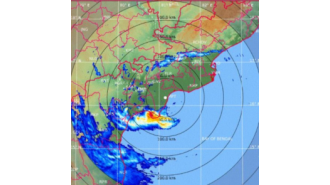Illinois Lawmakers Demand Explanation on Children Stuck in Psychiatric Hospitals
A call for state welfare officials to appear at a public hearing follows our ProPublica Illinois investigation.
Illinois lawmakers have asked state child welfare officials to explain why they routinely fail to find better homes for hundreds of children in psychiatric hospitals, leaving them trapped for weeks and sometimes months.
State Sen. Julie Morrison, a Democrat from Deerfield, called for a public hearing after a ProPublica Illinois investigation last week revealed that children in the care of the Illinois Department of Children and Family Services are confined to psychiatric hospitals after physicians have cleared them for release.
The investigation found that, between 2015 and 2017, children and teens collectively spent more than 27,000 days stuck in psychiatric hospitals instead of in more appropriate placements, including residential treatment centers or foster homes. And the number of psychiatric admissions that went beyond medical necessity has surged, jumping from 88 in 2014 to 301 last year, an increase the department said it cannot explain.
“I think they’re going to come out more damaged and more difficult to treat by leaving them in for extended periods of time beyond medical necessity,” Morrison said in an interview. “We’re hurting these children.”
The ProPublica Illinois investigation found that DCFS spent nearly $7 million over the past three years on unnecessary psychiatric hospitalizations of children as young as 4. During that time, nearly 30 percent of all hospitalized children in DCFS care were held beyond medical necessity.
Those children spent an average of 64 days in psychiatric hospitals — about six times the national average. The prolonged hospitalizations, doctors said, often caused children to deteriorate emotionally and behaviorally, miss critical developmental milestones and fall drastically behind in school.
“It’s absolutely atrocious,” state Sen. Heather Steans, a Chicago Democrat, said of the findings. “These are locked-in facilities. These kids don’t even get to go outside. They should be getting placed without having to reach beyond medical necessity.”
Steans, who joined Morrison in calling for the hearing, said DCFS officials in the past did not have satisfactory answers or solutions when asked about moving children who were languishing in psychiatric hospitals. Illinois law requires that DCFS place children in “the least restrictive (most family-like) setting” available that is in the child’s best interest.
Morrison said she plans to schedule the hearing in the coming months in front of the Senate Human Services Committee. She said she expects DCFS to provide lawmakers with detailed information and statistics on the children being held beyond necessity as well as what the department is doing to address the problem.
That may prove difficult, however, given the errors and incomplete information in the data the department provided to ProPublica Illinois in response to a Freedom of Information Act request.
“I know this is a heavy lift,” Morrison said. “I know this can be costly. But you’re losing children in the system that we’re supposed to be protecting. I do think we’re causing more harm rather than putting them on the right path.”
Neil Skene, special assistant to DCFS Acting Director Beverly “B.J.” Walker, said the hearing “will be an opportunity to increase legislators’ understanding of this challenge and to describe what we at DCFS are doing to develop the services young people need to avoid or shorten psychiatric hospitalization.”
Charles Golbert, the Cook County acting public guardian, said he welcomed news of the public hearing as a way to “call attention and get answers to this problem that has been festering now for years.”
The American Civil Liberties Union of Illinois, which monitors DCFS as part of a federal consent decree, criticized the department’s approach in a statement that underscored DCFS’ “legal obligation to address this problem, not to excuse the harm it is inflicting on these youth because it is hard to care for them.”
The ACLU will discuss the issue at an upcoming court hearing, spokesman Ed Yohnka said.
DCFS officials for years have struggled to find homes for children ready to leave psychiatric hospitals, saying their complex diagnoses often make them the most challenging to place and that the state has far too few beds for children with severe mental illnesses. Following the story’s publication, DCFS issued a four-page primer, called “The Challenge of Youth in Psychiatric Hospitals,” to child welfare organizations and legislators across the state.
“The narratives surrounding the lives of these children and youth are many and tragic,” Walker wrote in the document. “The reality is that, as a society, we have missed multiple opportunities to intervene before these children reach the DCFS ‘emergency room’ and then become (beyond medical necessity) at a hospital.”






